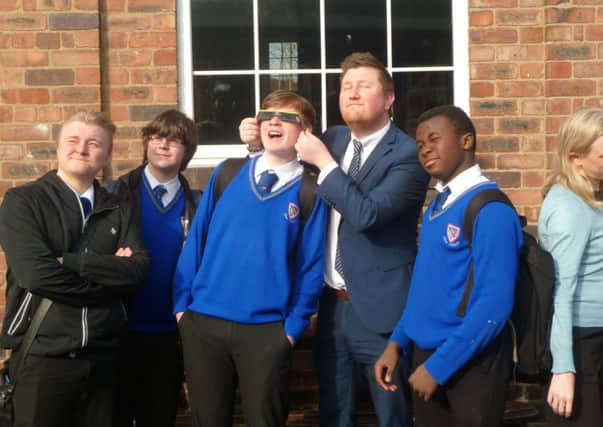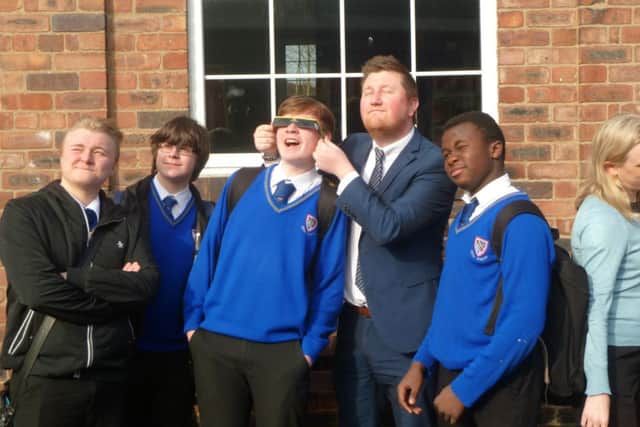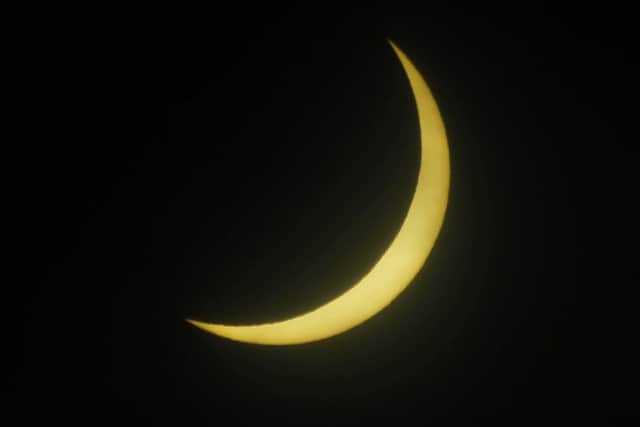Did you watch the solar eclipse?


Pupils at the Deanery High School got to experience the astronomical phenomenon thanks to teacher David Farley and the science staff who set up various telescopes and equipment to enable a safe viewing.
Youngsters at St Bernadette’s primary school in Shevington also set up their own viewing station.
Advertisement
Hide AdAdvertisement
Hide AdSome lucky sky-watchers got to experience the full extent of the event as the moon crossed in front of the sun, covering up to 97% of its face.
One of the best vantage points was in South Gloucestershire, where amateur astronomer Ralph Wilkins described the “eerie” feeling as a chilly gloom descended and shadows sharpened.
Elsewhere there were reports of birds “going crazy” and flocking to trees, confused by the fading light.
For much of the UK, the eclipse revealed itself as an abnormal level of darkness at 9.30am in the morning while the sun remained hidden behind a blanket of cloud.
Advertisement
Hide AdAdvertisement
Hide AdBut there were pockets of clear skies over Wales, parts of the West Country and the Midlands, and eastern Scotland around Edinburgh.


Around the UK, the proportion of the sun covered by the moon increased towards the north, ranging from 84% in London to 89% in Manchester, 93% in Edinburgh and 97% in Lerwick in the Shetland Isles.
Times also varied. In overcast London, the eclipse began at 8.24am, and reached its maximum extent at 9.31am. For observers in Edinburgh, it started at 8.30am and peaked at 9.35am.
The last solar eclipse of such significance occurred on August 11 1999, and was “total” - with 100% of the Sun covered - when seen from Cornwall.
Advertisement
Hide AdAdvertisement
Hide AdAnother “deep” partial eclipse visible in the UK will not occur until August 12, 2026, and the next total eclipse not until September 2090.


Ralph Wilkins, from the London-based Baker Street Irregular Astronomers, who joined a group of sky-watchers outside a school in Hambrook, South Gloucestershire, to witness the eclipse, said: “The sky started clearing just after first contact and we were able to watch the moon glide in front of the sun.
“It was a unique experience - eerie is the right word for it. The shadows started to sharpen and everything began to develop this yellowish hue.
“Whenever there’s a solar eclipse in the UK you tend to get cloud, so to be treated to clear skies was really wonderful. It really was beautiful. We were all thrilled.”